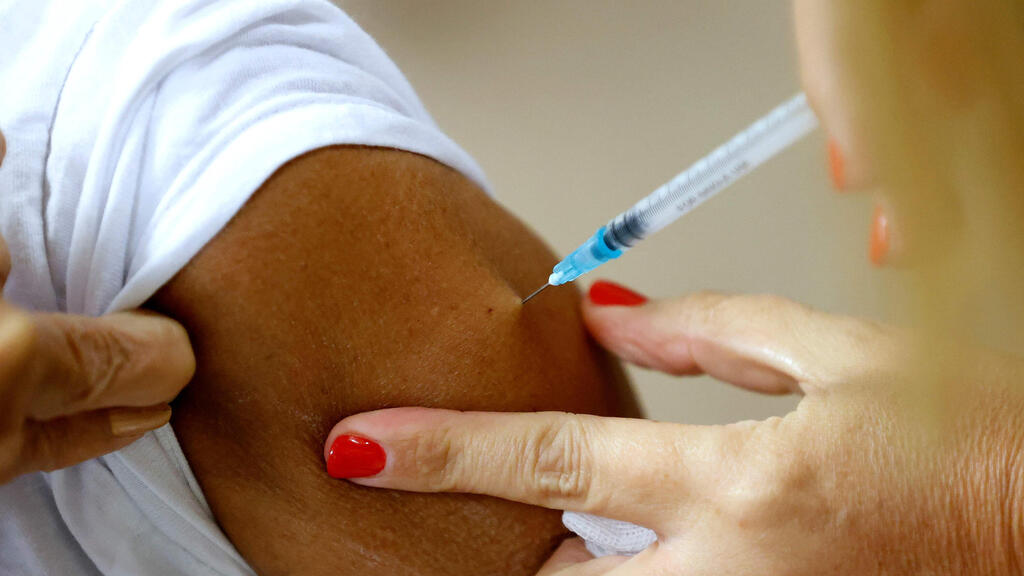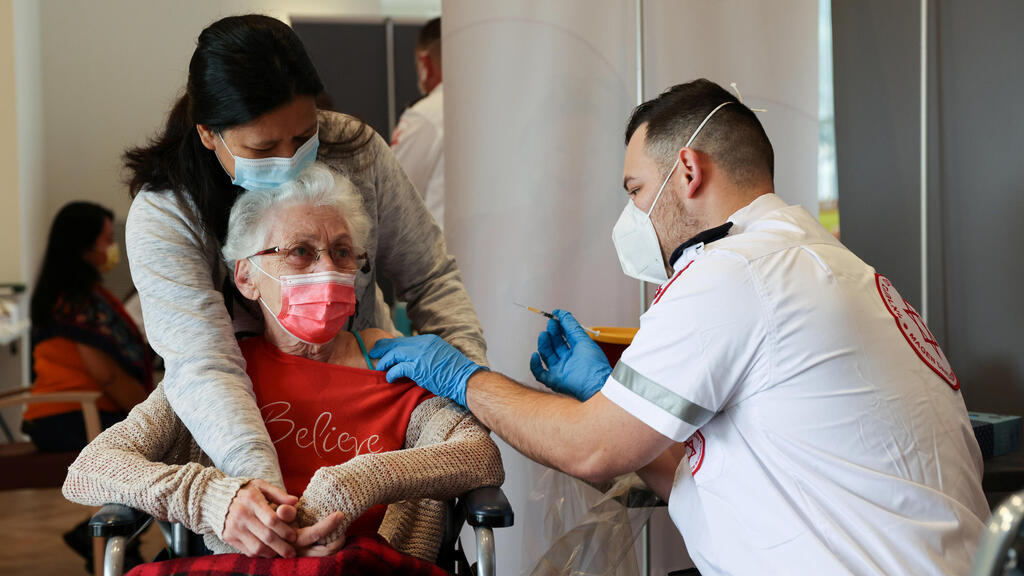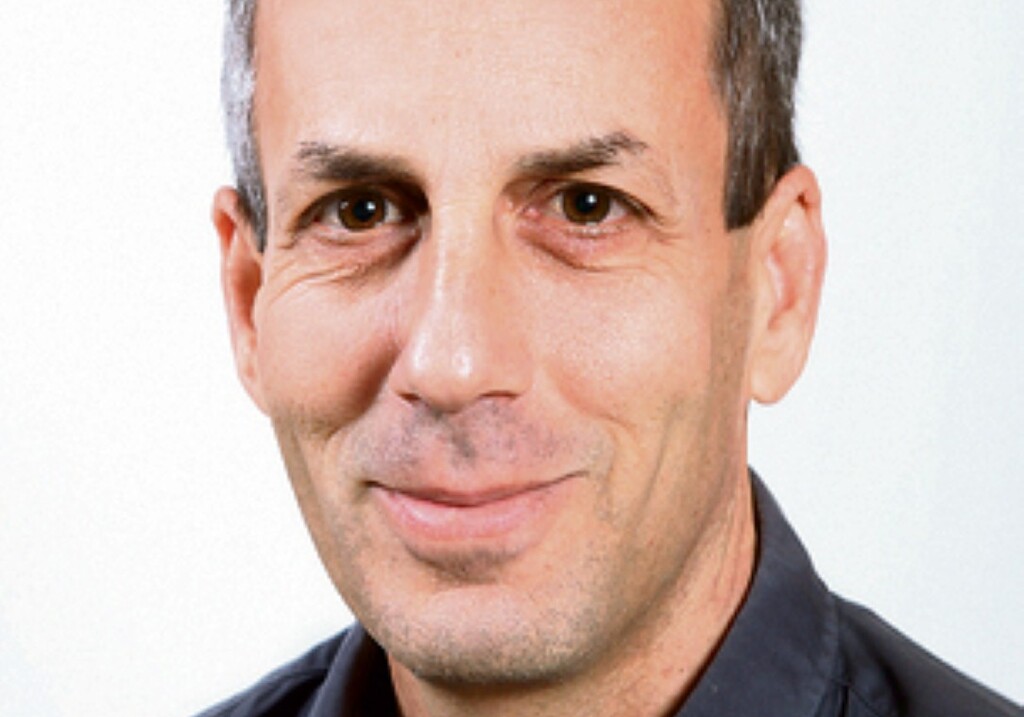The Health Ministry said Tuesday that certain cancer patients will not be eligible to receive a third shot of the COVID-19 vaccine due to fears that it could interfere with their treatment for the disease.
The announcement came a day after the Health Ministry informed Israel's four healthcare providers that they could administer the third dose to all immunocompromised adults.
3 View gallery


Administrating the third booster shot at Sheba Medical Center in central Israel
(Photo: AFP)
The decision to reverse course came during a meeting on Tuesday morning between ministry officials and representatives of the four health maintenance organizations.
Despite the announcement and the new directive to the HMOs, a decision has yet to be made on which specific cancer patients to exclude.
The options are all oncology patients; patients undergoing biological treatment; patients undergoing radiation treatment; or only those battling certain types of cancer, such as Hodgkin's lymphoma and melanoma.
3 View gallery


The resident of a nursing home in Netanya holds the hand of her care giver as she receives the coronavirus vaccine
(Photo: Reuters)
According to sources familiar with the matter, organ transplant recipients will be the only ones with a compromised immune system who are definitely eligible for the third jab.
"A protocol was issued [Monday] regarding the administration of a third dose," a senior health official.
"Now there has been a discussion with the Health Ministry, in which we learned it was rethinking its directive. For the time being, it has been agreed that amended guidance will be issued,” said the source.
“According to the current directive, if an organ transplant patient wants to receive the third jab, they can. As for the rest, including cancer patients, we are awaiting further guidance.”
According to the source, the HMOs have asked the ministry to help in understanding how it compiled its booster shot eligibility list.
“They said that another discussion was going to take place with experts on the matter,” the source added.
Prof. Gil Bar-Sela, the chair of the Israel Society for Clinical Oncology and Radiotherapy, said he had been surprised to hear that the ministry had decided to offer cancer patients a third vaccine.
In the directive issued on Monday, "there is one sentence that recommends vaccinating all oncology patients who are undergoing chemotherapy, immunotherapy and biological treatment," he said.
“We were not consulted nor were we asked for our opinion on the matter, which is quite different to that of the directive,” said Bar-Sela.
"A lot of people have experienced side effects as a result of the vaccine. For those undergoing treatments, it can disrupt their treatment sequence, which is critical in oncology."
Bar-Sela said that a professional committee had been set up by several oncologists to assist in formulating professional guidelines on the issue.
“We are the professional element," he said. "We must be partners in any decision making process.”


